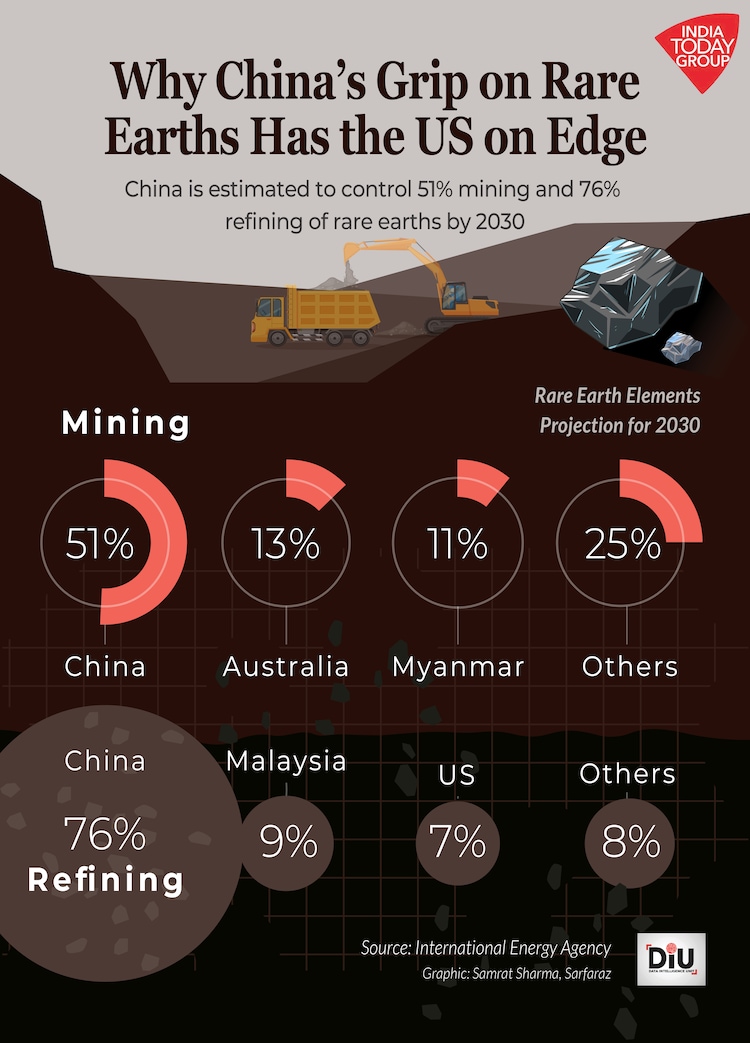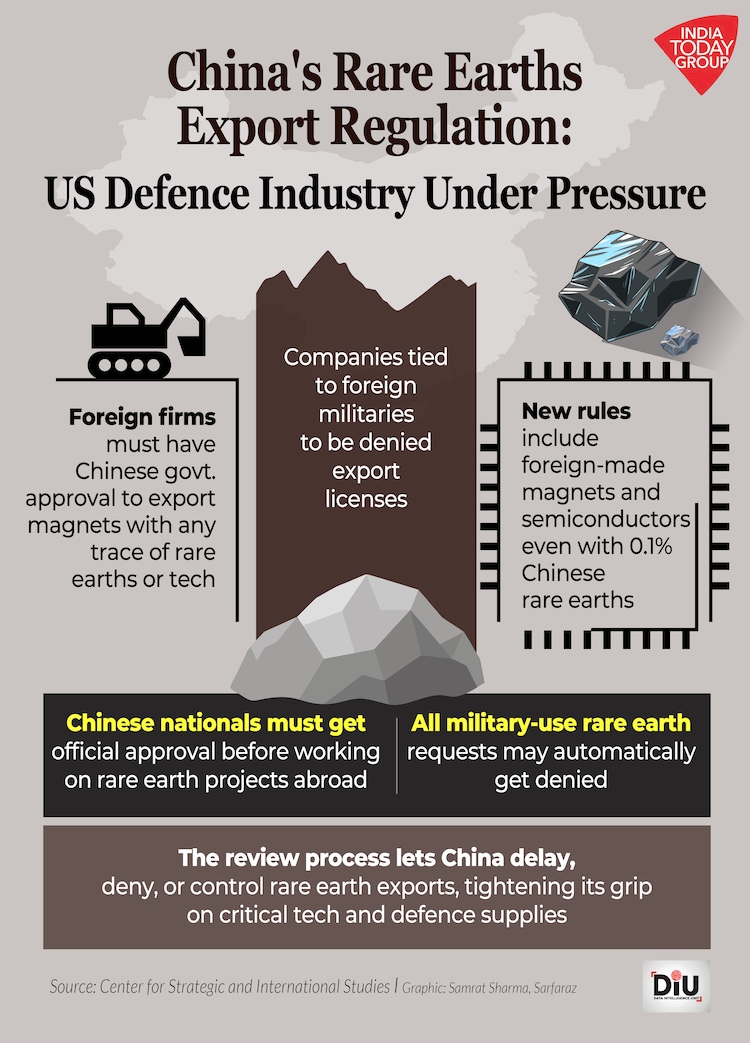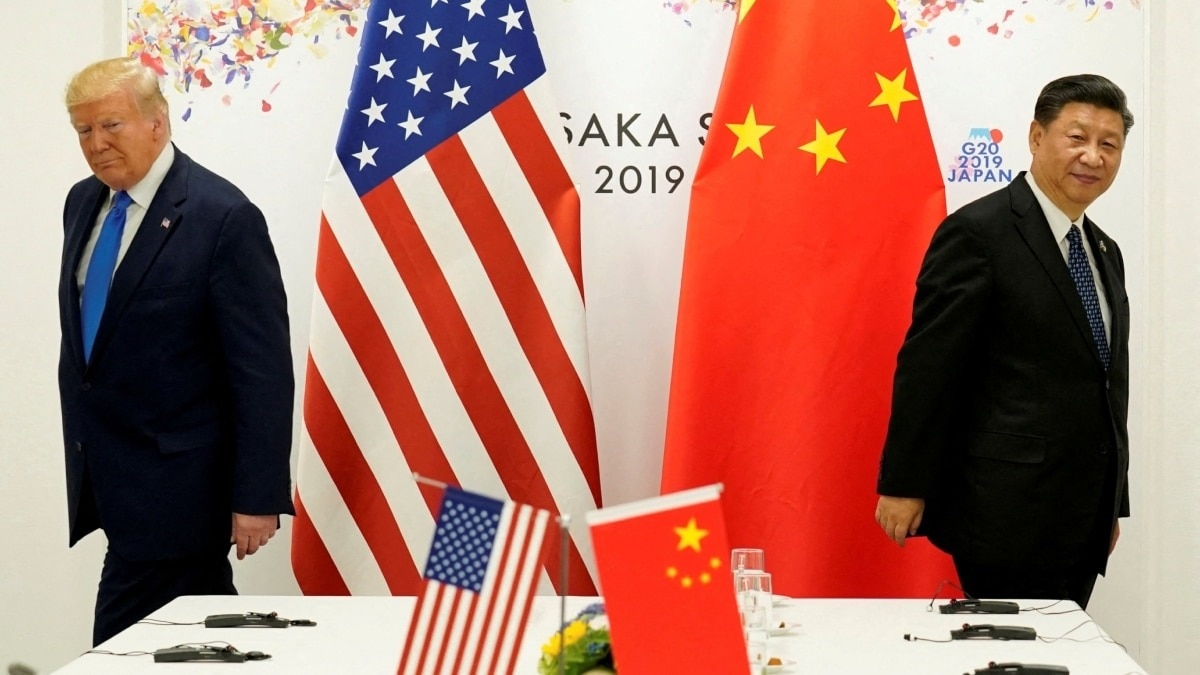US President Donald Trump has imposed punitive tariffs on countries around the world. China is no exception, as it faces a threat of an additional 100 per cent tariff, starting next month. This came after China placed stricter restrictions last Thursday on rare earth elements.
Why? Because rare earths have the potential to replace the power of gold and oil in the international market.
The US threatened an additional 100 per cent tariff on China over rare earths curbsAfghanistan has invited India to invest in its mineral sectorThe civil war in Myanmar has led the Kachin Independence Army to capture the town of Panwa, a major rare earth production siteJapan will invest USD 120 million in French rare earths projectAustralia’s first rare earth element processing plant opens in KalgoorlieEstonia is set to begin production of permanent rare earth magnets sufficient to support the manufacturing of nearly 1.5 million electric carsRARE AND DESIRABLE
Rare earth elements are paramount for new-age technologies, from high-tech devices such as smartphones and laptops to clean energy and electric vehicles. Even guided missiles, radar systems, drones and jet engines need them, making them a vital part of geopolitics.
Rare earth elements have unique magnetic, luminescent, and electrochemical properties that make them irreplaceable in many niche applications where alternatives are less efficient, more expensive, or not viable. With the emergence of artificial intelligence, its supply and sustainability are now strategic global concerns.
WHY IS US DEVASTATED BY CHINA’S REGULATIONS?
US military strength is heavily reliant on rare earth elements. They power F-35 fighter jets, Virginia- and Columbia-class submarines, Tomahawk missiles, radar systems, Predator unmanned aerial vehicles, and the Joint Direct Attack Munition series of smart bombs, among others. But not only is the US struggling to keep pace with the production of these systems, China is rapidly scaling up at nearly five to six times faster pace, according to the Centre for Strategic and International Studies.
New restrictions announced by China — starting December 1 — will deny export licences to companies with any affiliation to foreign militaries, including those in the US. The Chinese government has also made clear that any requests to use rare earths for military purposes will be automatically rejected. Overall, the policy is aimed at preventing any contribution of Chinese-origin rare earths or related technologies to foreign defence supply chains.

MAJOR PLAYERS AND PROJECTIONS
Rare earths production involves two major processes: mining and refining. China, Australia and Myanmar are the top three players in mining. They accounted for 86 per cent of mining in 2024, and are expected to produce at least 74 per cent by 2030, according to the International Energy Agency. The share of China is projected to remain 51 per cent, Australia 13 per cent and Myanmar 11 per cent.
In terms of refining, China, Malaysia and the US are the top three players, and they accounted for 97 per cent of global rare earth refining in 2024. By 2030, China’s share in refining is projected to remain 76 per cent, Malaysia nine per cent, and the US seven per cent.

COMPLEX TECH NEEDED
The difference between mining and refining capacities is due to the complex technologies required for the latter, as it also includes handling radioactive waste. “The type of ores that magnet REEs often come from also contain radioactive elements such as uranium and thorium, and very few countries have the infrastructure to use or store these byproducts,” the IEA noted in its Global Critical Minerals Outlook 2025 report.
It added that proper storage is the only way to prevent this material from entering the environment through waste streams, but studies show that only 17 per cent of operating rare earth miners align with the Global Industry Standard on Tailings Management.
To tackle China’s dominance in the critical minerals sector, the Pentagon recently sought to procure up to USD 1 billion worth of critical minerals, according to news reports.
Also Read | Rare scare: China’s choke on rare earth minerals will hurt US fighter jets
– Ends
